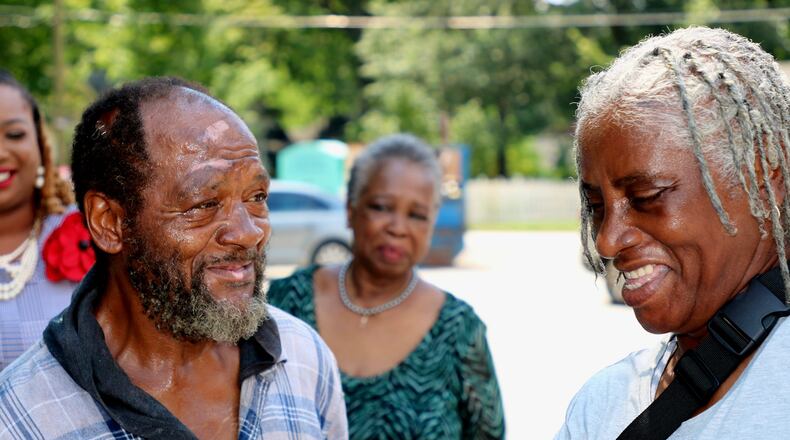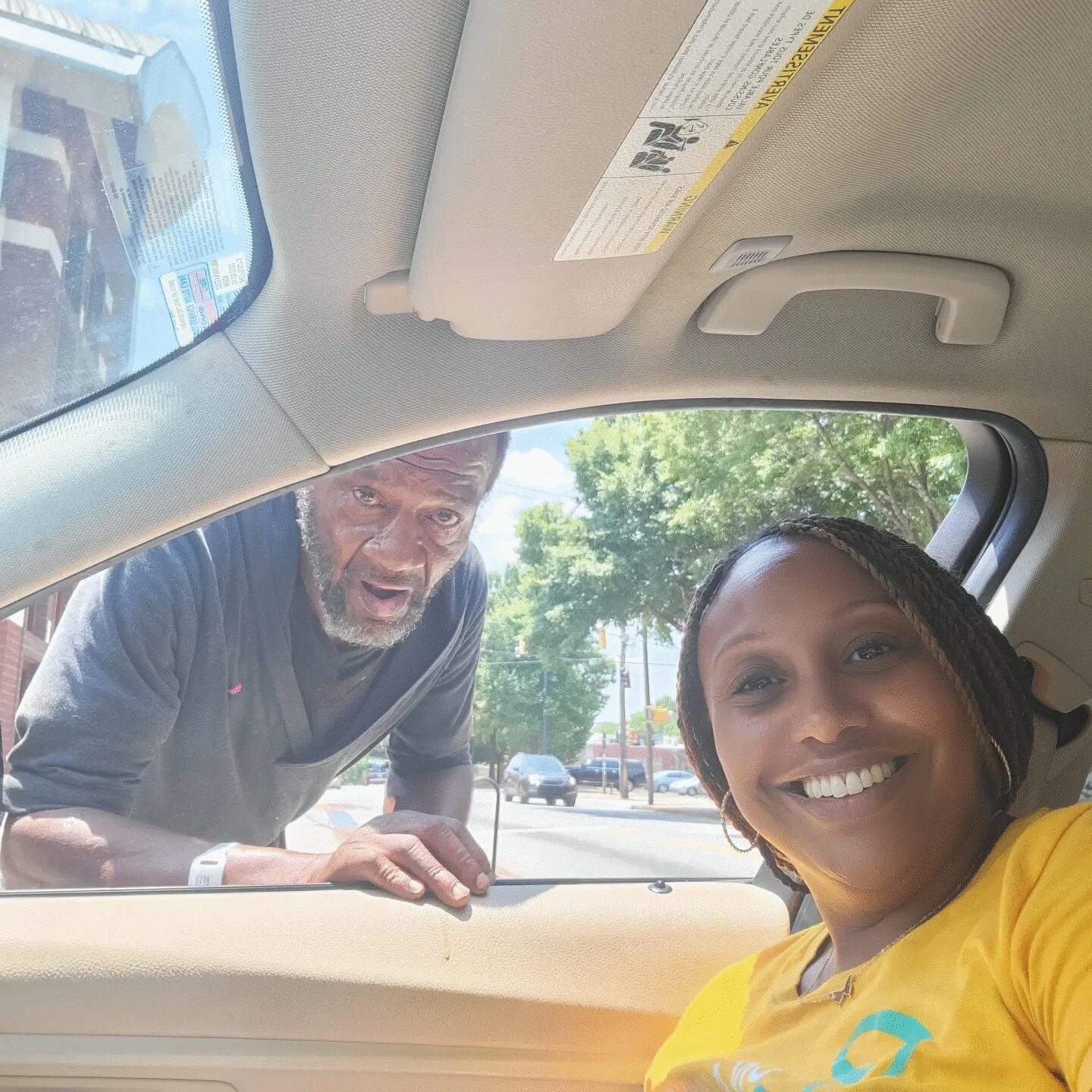On Oct. 24, just after 1 a.m., Emanuel Biggs met his end on the same streets where he lived for decades.
The initial police record of his death was straightforward:
“Atlanta police responded to a pedestrian struck by a vehicle at 403 Moreland Avenue SE. Upon arrival, officers located a male in the roadway deceased. The Accident Investigations Unit was notified and responded to the scene. Further investigation revealed the pedestrian was crossing the street outside of the crosswalk and while the traffic light was green when he was struck. The driver of the vehicle involved remained on scene and cooperated with investigators. There are no charges pending.”
When word reached Don Schanche Jr. the next day, he sat down and chronicled on Facebook his yearslong association with Biggs.
The Gospel of Matthew quotes the Old Testament prophet Isaiah saying that the Christ shall be called Emmanuel, meaning “God with us.”
So Emanuel Biggs had that going for him — a name that tied him directly to the coming of the Messiah.
I’m not suggesting Emanuel was particularly Christlike, except insofar as Jesus said you will meet Christ in every needy person you ever encounter. Emanuel had profound needs. He suffered from chronic mental illness and, in his madness, he strained the sanity of anyone who tried to help him. That said, he wasn’t a bad guy once you got to know him.
Credit: Photo courtesy Charlotte Jackson-Johnson
Credit: Photo courtesy Charlotte Jackson-Johnson
Everyone up and down Moreland Avenue knew Emanuel, from I-20 to the Zesto’s burgers at the corner of what used to be called Confederate Avenue. That was where he lived outdoors in the heat and cold, and that is where, on an early Monday morning, he was struck by a car and killed.
People in the surrounding neighborhoods knew him to knock on their doors and beg a bit of change for a bite or a bus ticket. Or if they didn’t meet him that way, they saw his bedraggled form staggering unsteadily up and down the road, mumbling about malevolent conspiracies against him. At First Iconium Baptist Church, we knew him as a member who attended sporadically, sometimes got loud and often slept out beneath a portico behind the church — this despite multiple efforts by Rev. Timothy McDonald and many other people to find him a home of his own to live in. Emanuel never stayed in any of those homes for long.
Credit: Photo courtesy Charlotte Jackson-Johnson
Credit: Photo courtesy Charlotte Jackson-Johnson
About eight years ago, following another run-in with a moving car that put him in a hospital and then a rehab center, he was itching to get back out on the street. I asked him, “Emanuel, you’ve got a bed here and three meals a day — why are you anxious to leave?”
Being at that time on his psych meds and in a fairly lucid frame of mind he answered, “I’m an adventurer and a wanderer.”
I’m serious, that’s exactly what he said.
It brought to mind the opening line of Homer’s Odyssey, which says in one translation, “Sing to me of the man, Muse, the man of twists and turns, driven time and again off course, once he had plundered the hallowed heights of Troy.” A driven man of twists and turns was Emanuel. Unlike Odysseus, he didn’t fight a war against a great city, unless you count Atlanta. Mostly, his war was inside his own head. His wanderings, though, were real.
Credit: photo courtesy Don Schanche Jr.
Credit: photo courtesy Don Schanche Jr.
Emanuel was banned from all the local convenience stores and fast-food restaurants, and he periodically would be removed from Moreland Avenue to spend time in jail or a psych ward. Always, until that Monday, he returned.
I met him when we moved to Atlanta in 2006. Our home was two blocks off Moreland, part of Emanuel’s territory. He began showing up at our door, often unable to communicate in any coherent way. We’d offer him food and, if he wanted one, a ride. I confess that I was quick to give him a lift, if only to move him elsewhere. Not my finest moments, but it’s the truth.
One Christmas morning, he showed up asking me to cash a check for him. OK — Christmas morning, and “Thou shalt call his name Emmanuel.” I got the point. Nevertheless, his check bounced.
I believe Emanuel was younger than I am — in his early 60s. Given the hardships he endured, I’m amazed he lived as long as he did.
Emanuel swore he wasn’t on drugs, but I gather from people who knew him that his mental state was adversely affected years ago by huffing paint, and that more recently he would indeed self-medicate with a variety of controlled substances.
We moved away from the neighborhood six years ago, and since then I’ve only seen Emanuel at church. Three days before he died, one of our friends in the neighborhood called to say he was on her porch shouting, and he was making her afraid. She asked if I knew a number other than the police she could call for help. Sadly, I didn’t.
That lack of alternatives and the hardship of Emanuel’s life reflect something about chronic mental illness and about our society’s utter failure to provide effective care for people who have it. I suspect his life didn’t have to be so hard if everything we know about mental healing and community and love could have been brought to bear on his behalf. Yet I also have to admire Emanuel’s stubborn determination to wander his own path in his own way.
Rest from your troubles, Emanuel. It’ll be me knocking on your door one of these days.
Don Schanche Jr. is a retired journalist who wrote and edited for several Georgia newspapers and the Associated Press.
About the Author
Keep Reading
The Latest
Featured






